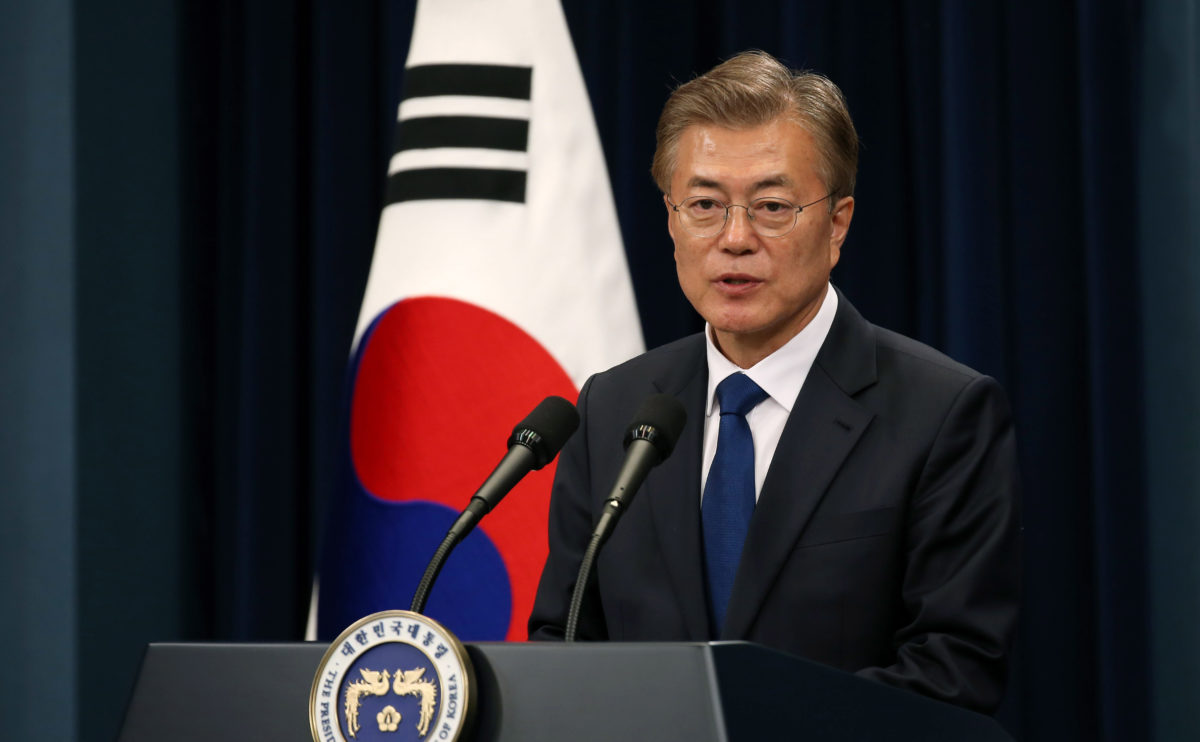While Europe is currently looking to South Korea to find an adequate response to the ongoing Covid-19 outbreak, South Korea, in turn, is looking toward Europe for policy inspiration in response to the climate crisis.
South Korea will hold a legislative election on April 15 and sitting President Moon Jae-in has pointed to Europe's new zero-carbon 2050 strategy and Green New Deal. His center-liberal Democratic Party has vowed to adopt a similar plan by codifying climate action in a green new deal.
As envisioned by the party, the plan will seek to expand investment in clean technologies and improve the competitiveness of renewable energy resources. Additionally, the incumbent party wants to establish a program to facilitate industrial innovation. This means that Korea will foster the development of low-carbon industries and financially incentivize energy efficiency.
In terms of renewable energy, the party did not reveal a detailed plan, but said that its zero-carbon emissions policy would be realized through the addition of renewable energy capacity.
Furthermore, public institutions and financing options will divest from fossil fuels as part of the plan. The government also plans to create financial instruments that will increase investments in the renewable energy sector.
One instrument that the party plan is looking at is a carbon tax, although the plan as it stands right now does not include any details about the extent of the carbon tax. Instead, the party said that it will put the tax up for debate and believes that such a plan should be subject to society-wide deliberations.
Beyond the carbon tax, the government will mull the possibility of introducing tax cuts for green businesses and will look toward market systems such as the RE100 incentive to promote renewable energy in the industrial sector and generate more green jobs.
Hydrogen strategy
The plan also includes a hydrogen strategy. Power-to-gas systems will accompany the electricity system and play a vital role in the mobility sector if the government has the chance to realize its vision. The plan includes measures to adapt the infrastructure that is necessary for hydrogen or battery-based transportation, and it will look to support its car industry to develop the necessary technologies further.
Lastly, President Moon wants to tackle the country's fine dust pollution issue. To this end, the plan foresees the country establishing cooperative ties with Japan and China to reduce fine dust, smog, and air pollution across the entire region. By 2040, the government wants to reach 10µm/m3 – a level the government said would be in line with what other advanced economies are seeking to achieve.
In its election pledge, the party repeatedly mentions the EU's 2050 zero-carbon emission target and the proposed Green New Deal. But this is not the first time Moon has looked to Europe for renewable energy policy inspiration.
While he announced plans to build a 3 GW solar PV station on reclaimed land at Saemangeum, he also said that during his last visit to Denmark, he learned that the country employs 33,000 people in its wind industry. The sector accounts for 8.5% of Denmark's total export volume, and Moon has pledged to emulate such numbers at home.
South Korea wants to generate 20% of its power from renewables by 2030. The country is working on installing 30.8 GW of solar PV by that date, with 9% of that capacity to be developed at Saemangeum. The government is overseeing the development of a 2.1 GW floating PV project on the Saemangeum tidal flats, as well as a 1 GW rooftop solar plan in Seoul. It installed about 2 GW of PV in 2019.
While the Covid-19 outbreak has seen European legislators mull delays and renegotiations of the bloc's zero-emission plans, South Korea's ruling party has identified the economic potential of preparing its economy for a carbon-free future.
This content is protected by copyright and may not be reused. If you want to cooperate with us and would like to reuse some of our content, please contact: editors@pv-magazine.com.




5 comments
By submitting this form you agree to pv magazine using your data for the purposes of publishing your comment.
Your personal data will only be disclosed or otherwise transmitted to third parties for the purposes of spam filtering or if this is necessary for technical maintenance of the website. Any other transfer to third parties will not take place unless this is justified on the basis of applicable data protection regulations or if pv magazine is legally obliged to do so.
You may revoke this consent at any time with effect for the future, in which case your personal data will be deleted immediately. Otherwise, your data will be deleted if pv magazine has processed your request or the purpose of data storage is fulfilled.
Further information on data privacy can be found in our Data Protection Policy.